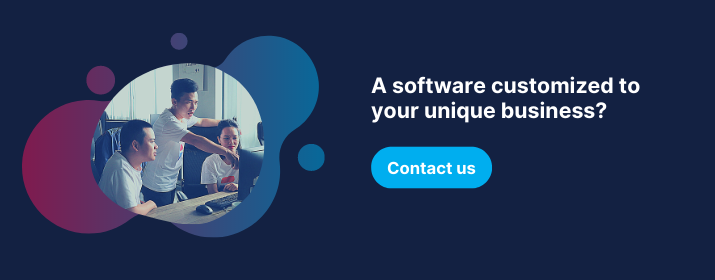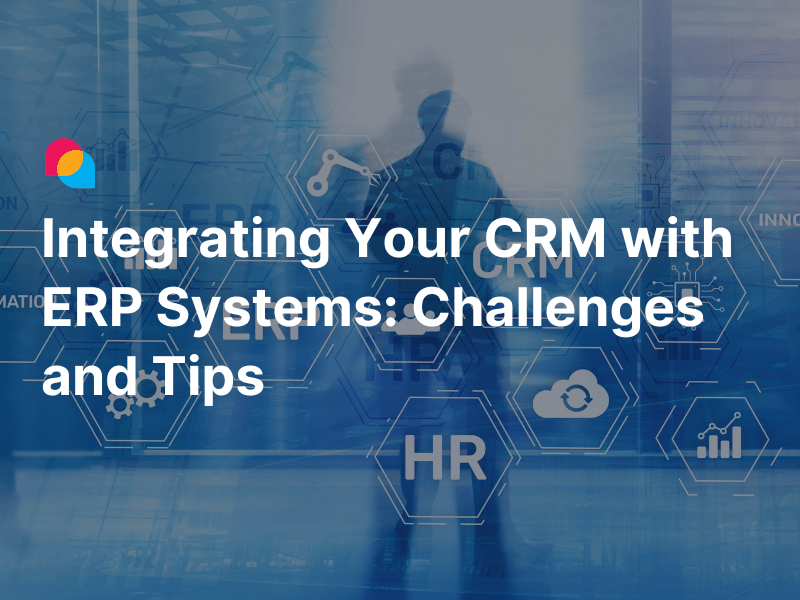Choosing a marketplace development partner isn’t an easy task, and their number has grown every year. And that's the paradox: the more options you have, the more difficult it's to make the right choice. In the previous article, How to build an online marketplace platform, we provided some common approaches to building marketplace platforms with their pros and cons, including:
- Build on open-source codes.
- Build on SaaS marketplace builders.
- Custom development.
Each choice will affect your launch time, feature set, workload, required budget, and how much customizability you require.
This article will go deeper into how to select the right method for building your own online marketplace platform and key factors to consider when opting for each method, which helps businesses and individuals evaluate them and make better decisions.
Let’s roll!
Build on open-source codes.
Developing on top of open-source marketplace software involves utilizing source code that is freely available (or for a one-time fee) for modification, redistribution, and commercial use. Some common open-source marketplace solutions include Magento, Cocorico, Shuup, X-Cart, Sellacious, WooCommerce, and Shuup, to name a few.
Now, look at the following aspects when picking out an open-source marketplace solution:
- Initial technical knowledge is required.
It's challenging to find the most suitable open-source software that can be customized quickly and easily. Therefore, you'll either need some technical understanding of software development or engage experienced developers to assist you. - The customization ability.
You need to check whether your open source software (OSS) is compatible with other software required to run your business smoothly, such as ERPs, CRMs, and PIMs. If it has good compatibility and interoperability capabilities, modifying your product will be easier without building a new one from scratch. - Data security issues.
Cybersecurity is a critical factor to consider. Since OSS codes are open to all, their coding can be altered. Sometimes it may lead to virus transfers and information thefts. You can pay attention to many different certificates, such as SSL certificates (Secure Sockets Layer), ISO/IEC 27001 Certification (Information Security Management), ISO 28000:2007 Certification, PCI DSS (Payment Card Industry Data Security Standard), CSA STAR Certification (Cloud Security Alliance). They help you secure online transactions and keep customer information private and secure. - Licenses.
Licenses for OSS vary. Some will compel you to make any publicly available modifications to the source code, while others will enable you to keep those changes private. You should read the licensing terms carefully before using or changing the program. The following OSI-approved licenses are popular, widely used, or have strong communities: MIT License, GNU General Public License v3.0, BSD License, Mozilla Public License 2.0, Apache License 2.0, Common Development and Distribution License, and so on. - Third-party plugins.
Many things can be done using third-party plugins. E-Wallets, for example, are the preferred payment option of worldwide online shoppers. You can set up an online marketplace platform that supports multiple payment options, from credit cards to bank transfers. Some popular third-party payment gateways that are trusted by thousands of businesses worldwide are Stripe, PayPal, Alipay, Square, etc. - Support both from the vendor and the community.
Even though the software is open-source, hosting, updates, and maintenance incur monthly costs. Given that, you need to require long-term support from the vendor. Furthermore, community forums are a valuable space to quickly uncover the most severe drawbacks and determine whether you're willing to compromise on them.
Build on SaaS marketplace builders
A SaaS platform is one type of marketplace off-the-shelf solution where hosting is included. It consists of API-based solutions and no-code SaaS ones. In terms of customizability, the former is more flexible than the latter. Some popular SaaS marketplace solutions are Sharetribe Go, Shopify, Yelo, Convictional, Mirakl, and others.
When it comes to starting developing an online marketplace using the SaaS platform, you need to think out the following factors to determine the right SaaS platform:
- Initial technical knowledge is required.
As a non-technical background, you can quickly build your marketplace by utilizing a no-code SaaS. However, when you use an API-based SaaS platform, it requires more technical skills. Depending on how much customization you want and the software architecture you've chosen, the needed skills may vary significantly. What's more, your expertise lets you promptly read through the software provider's documentation, API reference, templates, and developer tooling. - Migration services.
The provider's migration services are also critical. They should align with your business' cloud goals and your current IT infrastructure. Two parties need to clarify whether the vendor supports you at each migration stage, from assessment, planning, and code refactoring to the actual workload migration, testing, and management. This helps you ensure a transparent and seamless transition. - Cross-platform compatibility.
An online marketplace SaaS application needs to be customized to users' preferred operating systems, like iOS, Android, macOS, Windows, and web browsers, like Chrome or Edge. You need to test the app in multiple environments since some have different interfaces and visuals across browsers. - Service deployment roadmap.
During the evaluation process, you likely question a provider about their strategy to innovate and grow, which will help you determine whether it would fit your long-term goal. This covers the provider's commitment to technologies, features, integration roadmap, interoperability, and third-party vendors, among other things. - Contracts and the Service Level Agreement (a.k.a. SLA).
The SLA should define service level objectives, exclusions and remediation policies, incentives, and penalties, being explicit about:- Service delivery: definition of the service, roles, and responsibilities of each party, service availability and management, and service continuity.
- Business terms: fees, operational reviews, insurance, commercial terms, policies, publicity.
- Data assurance: data security, data management, conversion and ownership, and usage rights.
- Legal protection: warranties, liability limitations, indemnification, intellectual property.
- Training and support.
Many marketplace SaaS providers provide training and onboarding programs to help drive adoption among new customers. You can find out what training programs are included and whether they cost extra. - Vendor lock-ins.
SaaS vendor lock-ins are restrictions that make it difficult for businesses to switch from one service provider to another. Due to aggressive competition between vendors, regulatory constraints, and proprietary technologies, it's essential to spell out technical, financial, and legal restrictions in their terms of service (ToS). - Performance and service reliability.
One of the most apparent parameters for evaluating performance is to compare the performance delivered (ideally within the recent 6-12 months) with what was committed in the SLA. - Certification, compliance, and standardization.
While certification and compliance may not be as critical for small projects and firms, they can be decisive factors in building a long-term business. Some of the most crucial certification bodies and frameworks to consider when choosing a SaaS provider:
| Security | Cloud | Operations |
|
|
|
- Vendor relationships and partnerships.
Understanding providers' connections and alliances with vendors is critical, especially if an organization works in multi-vendor setups. A cloud service, for example, might be delivered through a complicated network of subcontractors/connected services. Yet, it's better to avoid suppliers with a long chain of subcontractors, especially when working with mission-critical data.
Custom development
The last option is to custom your online marketplace platform from scratch, either on your in-house team or partner with an outsourcing software development vendor. This approach lets you develop bespoke software that meets any complex needs of marketplaces.
You can take advantage of offshore outsourcing services in Asia or nearshore outsourcing ones in Eastern Europe to access resources with equivalent skills and expertise. Given that, you can focus on growing your business, like product discovery, marketing, sales, distribution, and more.
Selecting a reliable software outsourcing partner is a multi-step process. It consists of analyzing the upside potentials and downside risks, estimating the cost, conducting the screening, and more. When it comes to the screening process, it matters what to ask and what to listen for. You can explore a detailed interview agenda in our previous article, Effective Software Outsourcing Screening Agenda for SMEs and Startups.
Besides, some aspects to pay attention to when singling out a software partner for building an online marketplace from scratch:
- Check their expertise, experience, and relevant case studies in marketplace development.
- Review client testimonials on reliable sites like Clutch and GoodFirms.
- Don't let the quality trade-off by choosing a low-cost option. This results in technical debt, poorly written codes, project delays, and poor workday lap.
- The software vendor needs to update the latest trends in the marketplace industry and use a modern tech stack to achieve the highest efficiency possible.
- Identify their software development methodologies and how they communicate with you.
Explore our case studies:
What is the right approach for creating your online marketplace?
To help you determine the right solution for your project, you can reply to the following questions:
What are your technical skills?
- Non-technical background: Your best choice is to start using a no-code SaaS solution for less technical users. Besides, working with a partner on bespoke development is also a proper alternative. These vendors can consult you on the proper solution to build your own online marketplace.
- Somewhat technical: There are a variety of alternatives available. The right option will be determined by how quickly you would like to ship the product to the market, what type of marketplace is needed, and your requirements.
- Experienced developer: As a developer, building from scratch is always an option. It enables you to develop critical features that meet the complicated requirements of the marketplace industry. You also may either employ open-source software or collaborate with an experienced software development vendor to accelerate the product development process.
How quickly do you want to launch your marketplace?
- Within 1-2 months: If you want to unveil a marketplace MVP in less than 1 month, your choice should be SaaS solutions.
- In more than 3 months: All options are on the table. You can outsource with a custom software development partner, utilize open-source software or collaborate with a marketplace SaaS builder.
How much customizability do you require?
- High customizability: An API-based SaaS or coding from scratch is your proper option if you need extensive customizability, both of which require development skills. Many startup founders, in our experience, prioritize launch time and reasonable costs over customizability when building their MVP.
- Low customizability: An no-code SaaS tool offers the lowest customizability. It provides core functionalities with only modest customization, making them ideal for teams with limited technical resources. However, it far exceeds all the other solutions in ease of use and speedy launch time.
What are you going to spend on this project?
- Limited budget: In this case, a SaaS solution is a perfect fit, allowing you to launch the product faster and save your costs for other activities like marketing, promotion, sale, etc. Yet, its functionalities are set in stone, and you can't change them to meet your needs.
- Large budget: We recommend looking for companies that can build a high-quality custom marketplace, either from scratch or based on existing software. Custom development lets you build and design precisely what you want. In addition, you can add additional features to the full-fledged product based on feedback from your early adopters.
To summarize and make a final decision, you can create a decision matrix that helps you evaluate the scale and select the best option between several choices. Since then, you can weigh each option to ensure the decision you make is the most rational.
Read also:
- How to validate an online beauty marketplace idea (with a sample)
- How to choose the right revenue model for a sustainable marketplace platform
- How to build an efficient Minimum Viable Product (MVP) for startups
Final thoughts,
In 2020, the top online marketplaces in the world sold $2.67 trillion, according to Digital Commerce 360's analysis. 92% of U.S. consumers shop on online marketplaces—and marketplace sellers reap the benefits. During the coronavirus pandemic, an online marketplace could be an essential solution to reach customers. With the right marketplace development partner, building a custom online marketplace platform is always possible that will secure your business in any crisis.
We hope this sharing helps you accelerate the selection, and eventually, you can decide on the marketplace development partner most capable of fulfilling your requirements.





